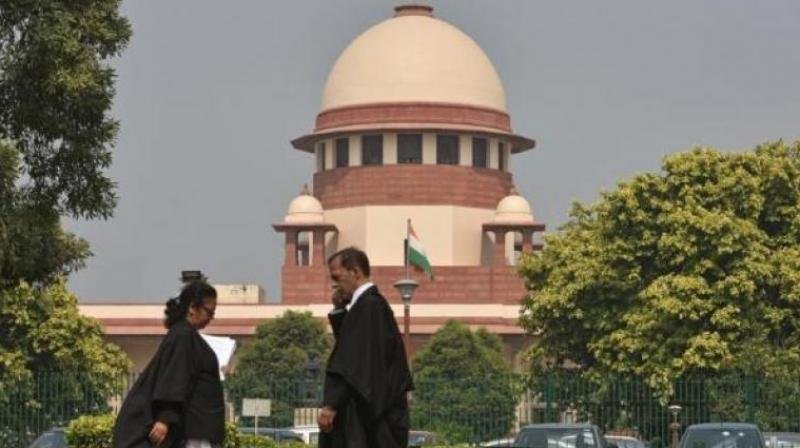Tokyo wins bid to host 2020 Summer Olympics
ஸ்விட்சர்லாந்து நாட்டைத் தலைமையிடமாகக் கொண்டு இயங்கும் சர்வதேச ஒலிம்பிக் கமிட்டியின் ஆண்டு செயல்குழுக் கூட்டம் கடந்த வெள்ளியன்று துவங்கியது. அர்ஜெண்டினாவின் தலைநகரான பியூனஸ் அயர்சில் இந்தக் கூட்டம் நடைபெற்றது.
இதில் வரும் 2020ஆம் ஆண்டிற்கான ஒலிம்பிக் போட்டிகளை நடத்தும் நகரத்தினை தேர்வு செய்யும் வாக்கெடுப்பு நேற்று நடைபெற்றது. இதில் துருக்கியின் இஸ்தான்புல் நகரைத் தோற்கடித்து ஜப்பானின் டோக்கியோ நகரம் இந்த வாய்ப்பினைப் பெற்றது.
வாக்கெடுப்புக்கான முதல் சுற்றில் கனடாவின் மாட்ரிட் நகரத்துடன் சரிசமமான வாக்குகளைப் பெற்ற இஸ்தான்புல், பின்னர் நடந்த விவாதத்தில் வெற்றி பெற்று இரண்டாவது சுற்று வாக்கெடுப்பிற்குத் தகுதி பெற்றது. இதன்பின்னர் நடந்த தகுதிச் சுற்றில் இஸ்தான்புல் பின்னுக்குத் தள்ளப்பட்டு, டோக்கியோ தேர்ந்தெடுக்கப்பட்டதாக ஒலிம்பிக் கமிட்டியின் தலைவர் ஜாக்குவஸ் ரோக் அறிவித்தார்.
ரஷ்யாவின் செயின்ட் பீட்டர்ச்பர்கில் நடைபெற்ற ஜி -20 கூட்டத் தொடருக்குப் பின்னர் இந்தக் கமிட்டியின் கூட்டத்தில் ஜப்பானியப் பிரதமர் ஷின்சோ அபே கலந்துகொண்டார். சுனாமியினால் பெரும் பாதிப்புக்கு உள்ளாகியிருக்கும் புகுஷிமா அணு உலை குறித்த உறுப்பினர்களின் அச்சத்தை ஜப்பானியப் பிரதமர் நிவர்த்தி செய்தார்.
டோக்கியோவிலிருந்து 220 கி.மீ தொலைவில் உள்ள இந்த அணு உலையானது தற்போது கட்டுக்குள் இருப்பதாகவும், அதனால் டோக்கியோ நகரத்திற்கு எந்த ஆபத்தும் நேரிடாது என்றும் அவர் உறுதி அளித்துள்ளார். ஒலிம்பிக் போட்டியினை நடத்த டோக்கியோ தேர்வு செய்யப்பட்டதை தொலைக்காட்சி வாயிலாக அறிய நேரிட்ட ஜப்பானிய மக்கள் மிகுந்த மகிழ்ச்சிக்கு உள்ளாகினர்.
கடந்த 2016ஆம் ஆண்டில் ரியோ டி ஜெனிரோவிடம் இந்த வாய்ப்பை இழந்தபின், டோக்கியோ இந்த முறை நேரிடையாக இரண்டாவது சுற்றுக்கு தேர்வு செய்யப்பட்டது. கடந்த 1964ஆம் ஆண்டு முதல்முறையாக டோக்கியோவில் ஒலிம்பிக் போட்டிகள் நடைபெற்றன.
தற்போது, 2020 ஆண்டிற்கான போட்டிகளை நடத்தும் வாய்ப்பினைப் பெற்றிருப்பதன் மூலம், ஆசிய நகரங்களிலேயே இரண்டாவது முறையாக ஒலிம்பிக் போட்டிகளை நடத்தும் நகரம் என்ற பெருமையை டோக்கியோ பெறுகின்றது.
Tokyo wins bid to host 2020 Summer Olympics
Tokyo was awarded the 2020 summer Olympic Games on Saturday, beating Istanbul in a head-to-head vote after Japanese Prime Minister Shinzo Abe delivered a charismatic plea to the International Olympic Committee and promised Japan’s crippled nuclear plant was “under control.” The Japanese capital won what one insider had called a “least-ugly” contest by most effectively covering its blemishes.
Rival Madrid has been laid low by the economy and Istanbul has been beset by anti-government protests. Tokyo won by a landslide, 60 votes to Istanbul’s 36, after Madrid was eliminated in a first round of voting. Abe, who left early from a Group of 20 summit in Russia to make his pitch at the meeting in Buenos Aires, promised the roughly 100 members of the International Olympic Committee that concerns about the leaking Fukushima nuclear plant 140 miles (230 km) from Tokyo were unfounded.
Fixing IOC members with a level gaze, he said: “It has never done and will never do any damage to Tokyo. There are no health-related problems until now, and nor will there be in the future – I make the statement to you in the most emphatic and unequivocal way.”
The plant’s operator has said hundreds of tonnes of radioactive water are pouring into the Pacific Ocean each day, and radiation levels have spiked. Abe’s government said this week it would spend almost half a billion dollars to try to fix the water crisis. He told the IOC on Saturday, “Let me assure you the situation is under control.”
Tokyo won the right to stage the sporting extravaganza for the second time, having hosted in 1964 when the Games first went to Asia. On that occasion, Abe’s grandfather, Prime Minister Nobusuke Kishi, led the bid to bring the Games to Japan. Tokyo in its pitch highlighted its solid finances and strong track record of delivering on promises. Olympic President Jacques Rogge described its as “a safe pair of hands.”
The next summer Olympics will be hosted by Rio de Janeiro in 2016, and the preparations for that Games have been plagued by delays and complications. Moreover, the Tokyo bid capitalizes on the potential of the Asian continent, with its increasingly consumer-focused economies. Winning the Games was an enormous prize after two years of intense lobbying and tens of millions of dollars spent, and Abe was thrilled.
“I would like to thank everyone in the Olympic movement and we will host wonderful Olympic Games,” a beaming Abe told Reuters seconds after the result. Bid leader Tsunekazu Takeda was in tears as he said, “It is a great honor that Tokyo has been chosen. For Istanbul, it was its fifth unsuccessful bid in the last six votes to host a summer Olympics. The city had pitched itself as a new region for the Games, the crossroads of Europe and Asia, and as a vehicle to help foster peace in the Middle East.
But the conflict in neighboring Syria and recent anti-government demonstrations in Turkey overshadowed the bid. Istanbul bid sports director Alp Berker was searching for a reason for rejection as he told Reuters, “I don’t know. … there are too many variables, maybe it’s the timing, maybe it’s something else.” When asked if the Syrian crisis had damaged their chances, he said: “We tried to tell them it was not the case, because it’s a global issue. Really, I don’t know what the members are thinking when they’re pushing the button.” IOC vice-president and presidential candidate Thomas Bach described the decision as new versus old.
“I think it is an election between a traditional candidature and new grounds, and today it was the traditional candidature that won,” he told Reuters.
Madrid, which had pitched a safe, affordable, “sensible” bid, was eliminated in a secret vote pitting it against Istanbul after the two cities tied behind Tokyo. Madrid’s attempt to host 2020 was its third consecutive try. Tokyo is planning to incorporate existing venues and has estimated a non-Games budget of about $4.4 billion, compared with $3.4 billion for the actual event. It already has a war-chest of some $4.5 billion in the bank.
The victory is expected to boost Abe’s popularity, and could potentially spur his signature pro-growth policies for the world’s third-biggest economy. A successful Tokyo bid should boost confidence as well as spur construction and tourism.





